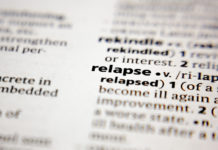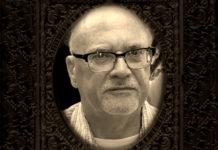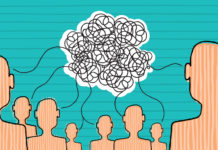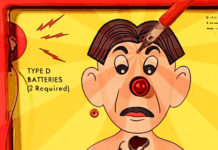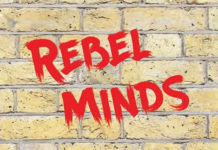Medical Ghostwriting: When an “Author” Is Not Necessarily an “Author”
Ghostwriting, which is prominent in the psychiatry literature, is a scam in which pharmaceutical companies use an academic sleight of hand to stump the naïve reader. It is time for editors of the major medical journals to use the same standards of authorship found in the humanities and social sciences.
The House of Cards with Informed Consent Standards
I recently submitted a recommendation to Oregon’s mental health officials as they consider revising their clinical standards. If adopted, my proposal will open the door to a much wider recognition of the role that poorly conducted informed consent plays in the excessive use of psychiatric medications.
Twin Studies and Ken Burns’ Upcoming Documentary on “The Gene: An Intimate History”
Siddhartha Mukherjee clearly knew little about the evidence supporting his claim that schizophrenia is a “genetic disease,” yet he thought he knew enough to reach strong conclusions in favor of genetics in what would become an award-winning book that was turned into a Ken Burns documentary.
Is Australia’s Psychiatric System Redeemable?
We have reached the point where we have to ask: Is psychiatry doing anything useful for society, or has it degenerated to an insatiable, high-cost and self-sustaining rentier gorging on the public purse? The Australian Productivity Commission is holding an enquiry into mental health; it is to be hoped that this will assist in the process of uncovering the truth.
The Field of Mental Health Has Gone Astray, But We Can Fix It
People should have real choice. The research and knowledge about how to work differently are already there. Now we need politicians and policymakers to force the change and make it happen in the established services. Mad in Norway will be a leading voice in ensuring this change.
What Does ‘Relapse’ Mean? Definitions Used in Antipsychotic Trials Are Unclear
Antipsychotic drugs are prescribed on the basis of trials that demonstrate a higher rate of ‘relapse’ in people who are withdrawn from these drugs compared to those who continue to take them. Yet, incredibly, there is no consensus about what ‘relapse’ means in this situation.
The Matrix: Disentangling Anti-Psychiatry
For the last forty years, psychiatry has been comprehensively critiqued from a myriad of disciplines including sociology, psychology, and the user movement. Is there anything that can be salvaged from the psychiatry project? How would a psychiatrist practice ethically in such a nefarious environment?
In Memory of Julie Greene
With deep regret, Mad in America announces another loss in our contributor community. Julie C. Greene, writer and antipsychiatry advocate, lost her battle with kidney disease on November 29 at her home in Beaver Falls, Pennsylvania. Julie had been an MIA blogger since 2014, including several pieces on the dangers of lithium.
A Tribute to Stephen Gilbert, Warrior Behind Enemy Lines
Stephen Boren, who posted here under the name Stephen Gilbert, passed away November 12 after a battle with cancer. Stephen offered a unique perspective, working as peer support staff at the same hospital where he had once been held as a patient. We will miss his daily presence on MIA.
Lighting a Spark to Heal Trauma: An Interview with Jesse Zook Mann
An interview with Jesse Zook Mann of Mental Health Media about trauma, medication withdrawal, and the possibility for recovery. Jesse was severely harmed by psychiatry, but uses language that reaches people who identify with the mainstream paradigm of mental health and mental illness.
The Darker the Night, the Brighter the Light: Five Lessons Learned This Month
One month ago I suddenly found myself in a very dark place. There is a depth of wisdom that comes from dark or challenging emotional states, that with good support and hard work looking at the underlying (and sometimes ancient) dynamics can lead to enormous insights and compassion.
Seven Strategies to Avoid Retraumatization While Working with Psychosis
Stories related to psychosis can be intense, and can lead to traumatic recall when a sufferer retells them and does not feel contained or believed within the relationship. I have a number of suggestions for how to encourage the telling of stories without retraumatizing survivors in group settings and in individual encounters.
MIA at Eight Years: Are We Fulfilling Our Mission?
Mad in America is about to turn eight years old, and as we are launching a fundraising effort to keep us going through 2020, I think it’s appropriate to ask the relevant question: Are we accomplishing what we set out to do?
Anthropologists Contemplate the Future Role of Psychiatry
Anthropologists who study the psychiatric field recently had papers published in two highly influential journals. While they both call for or describe reform initiatives, they point us in different directions with regard to the future role of psychiatrists. With a shift in resources, might psychiatry finally get it right?
Hearing Voices Network Launches Family & Friends Support Group
One of the HVN's fundamental principles is that "the person having these experiences is in the best position to decide or discover what they mean" and thus each person must "not try to speak for" another. The challenge for a family group will likely be for members to move past speaking about our loved ones to find or imagine the space where we ourselves are liberated.
High Time for Anarchism in Mental Health
Anarchism has much to offer the debate. It can present a clear voice saying: Liberty is not an obstacle for quality treatment, it is rather the very basis of it. Research shows that the anti-authoritarian elements in methods such as Open Dialogue and Stabilizing Homes actually promote a stronger, fuller recovery in patients.
Deep Brain Stimulation and Deeply Biased Researchers, Revisited
In the Washington Post last week, a new treatment was being advanced as a breakthrough for opioid addiction. What was this miraculous new intervention? Implanting electrodes deep in the brain, and using a battery implanted elsewhere in the body to zap the addict and keep him from relapsing.
“We Need a New Paradigm” — Rethinking Psychiatry’s Hospitalization Survey
Rethinking Psychiatry put out a survey on people’s experiences of psychiatric hospitalization in the Pacific Northwest. The results showed tremendous dissatisfaction, with the overwhelming majority of respondents reporting that they did not feel safe, secure or respected in the hospital.
Capitalism Makes Solutions Impossible: A Review of ‘Rebel Minds’
Psychiatry’s role, Rebel Minds makes clear, is to prepare the population for capitalism’s purposes, and to cull the humans who it fails to prepare. The relationship is symbiotic: psychiatry trades in medicalizing and biologicizing human suffering, which capitalism produces an endless supply of; it’s a match made in heaven.
The Revolt Against Psychiatry: A Book Review
The focus of Bonnie Burstow’s new book, The Revolt Against Psychiatry, “is not the problems that psychiatry presents but the attempt to counter them.” Burstow asks, “What pressures might we bring to bear to loosen the grip of psychiatry? We habitually seem to be losing the battle; so how do we turn the situation around?”
Got a Gene for That? The Latest from the Chronicles of Gene Worshiping
Among the latest examples of profiteering from the gene fad, there is now an app to determine your personal level of gayness, and researchers claim to have finally found real biomarkers to diagnose schizophrenia through a simple hair sample! Make no mistake: this is about the religion of scientism, not about science.
Holistic Approaches: A Proven Treatment for Psychotropic Drug Withdrawal
Published in the peer-reviewed journal Advances in Mind Body Medicine, this case series is the first of its kind to document the methodology employed in the successful discontinuation of a range of psychotropic medications, with holistic support interventions providing long-term mood support.
Responding to Workplace Mistreatment and Bullying
When people have "paranoia" or "persecutory voices," often with a bit of curiosity I discover people in their lives who actually are out to get them. Real bullies, real persecutors. And then the work becomes work that all survivors — diagnosed with psychosis or not — have to do to regain safety, trust, and empowerment.
From Moses to Jesus to Prozac: A Theory on “Chemical Imbalances” and Faith
How are psychiatry and religion similar? Both systems utilize parent-like caretakers who alluringly promise easy solutions to life’s difficult realities. Both involve firm belief in a force that’s powerful and fate-controlling, yet completely undetectable (God or an inborn ‘chemical imbalance’).
In Defense of Healthy Pride
How are we to differentiate the sort of healthy pride that accompanies hard-won, noble pursuits and is emotional sustenance for a person's self-esteem, and toxic pride, aimed at winning admiration from others as proof of one's superiority, possibly evoking the desire to use aggression and exploitation to attain power and dominance?






